Religious leaders draw up a plan to combat rising rents in Miami-Dade. The mayor signs on
- Oops!Something went wrong.Please try again later.
- Oops!Something went wrong.Please try again later.
After hearing from members of an influential religious group about the difficulties of finding affordable housing in South Florida, Miami-Dade County Mayor Daniella Levine Cava endorsed a program to subsidize loans for property owners willing to rent efficiencies to low-income tenants as well as a series of other steps aimed at addressing skyrocketing rents.
The proposals were laid out by People Acting for Community Together, or PACT, a nonprofit interfaith group made up of some 40 churches, synagogues and mosques in Miami-Dade that each year presses public officials to embrace their plans to dealing with some of Miami’s most urgent social problems.
Levine Cava was just one of the political leaders at Monday evening’s assembly at Barry University. On a separate issue, Public Defender Carlos Martinez and Clerk of the Court and Comptroller Juan Fernandez-Barquin, also vowed to pursue a program to help reduce the number of people who wind up arrested and even jailed because of unpaid traffic fines.
“Fifty-two weeks per year, we gather in our various faith communities so that we can all come together on this one day to stand up for justice,” said PACT Co-President Rev. Sherlain Stevens. “The reason why we come together for this mission is because the work that we do is grounded in Scripture.”
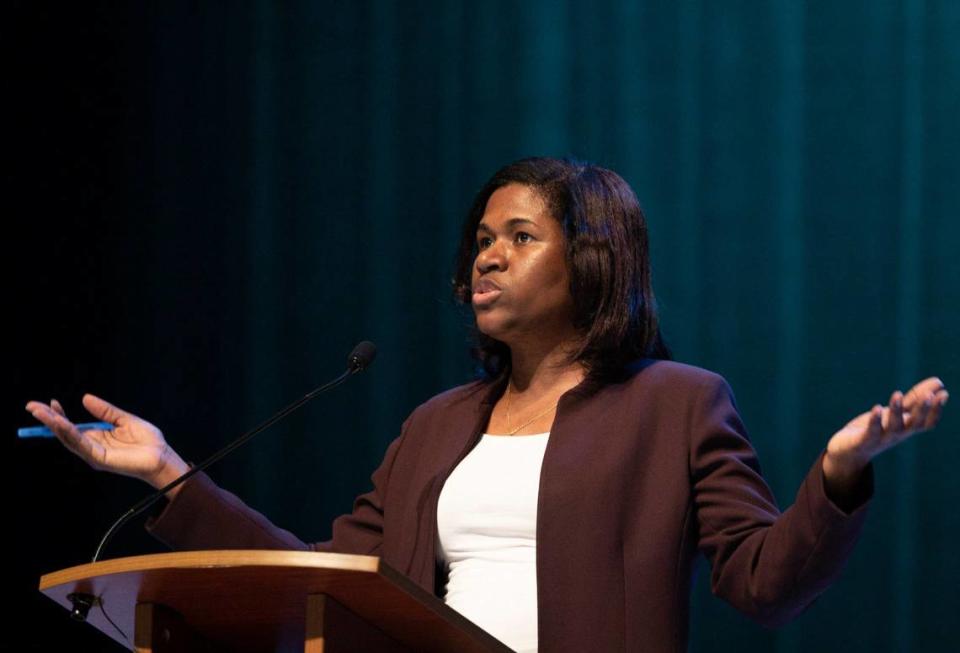
READ MORE: Housing in Miami keeps rising and wages can’t keep up. Now, more people feel the squeeze
This year, PACT members’ No. 1 priority were plans to address surging rent prices which have lead to tenants becoming evicted and sometimes, homeless. Miami-Dade county renters are the second most cost-burdened in the county, second only to New York City.
“Let’s be clear, it is a housing crisis,” said Oscar Parks of St. Peters Missionary Baptist Church in West Perrine. “Twenty-eight-thousand of our community members have left Miami-Dade County because they could not afford to live here.”
‘Let justice roll’
The annual PACT forum is called a “Nehemiah Action Assembly,” named after the Old Testament book of Nehemiah, where the group invites elected leaders to appear in front of hundreds of members from various congregations around Miami-Dade — most of whom also happen to be voters.
An opening prayer and comments from Miami Archbishop Thomas Wenski kicked off the assembly.
“Sometimes people would say, Why are we getting into these political issues?” Wenski said. “The issues that we’re concerned with today are more important. We just can’t leave them with the politicians, we have to make our voices heard.”
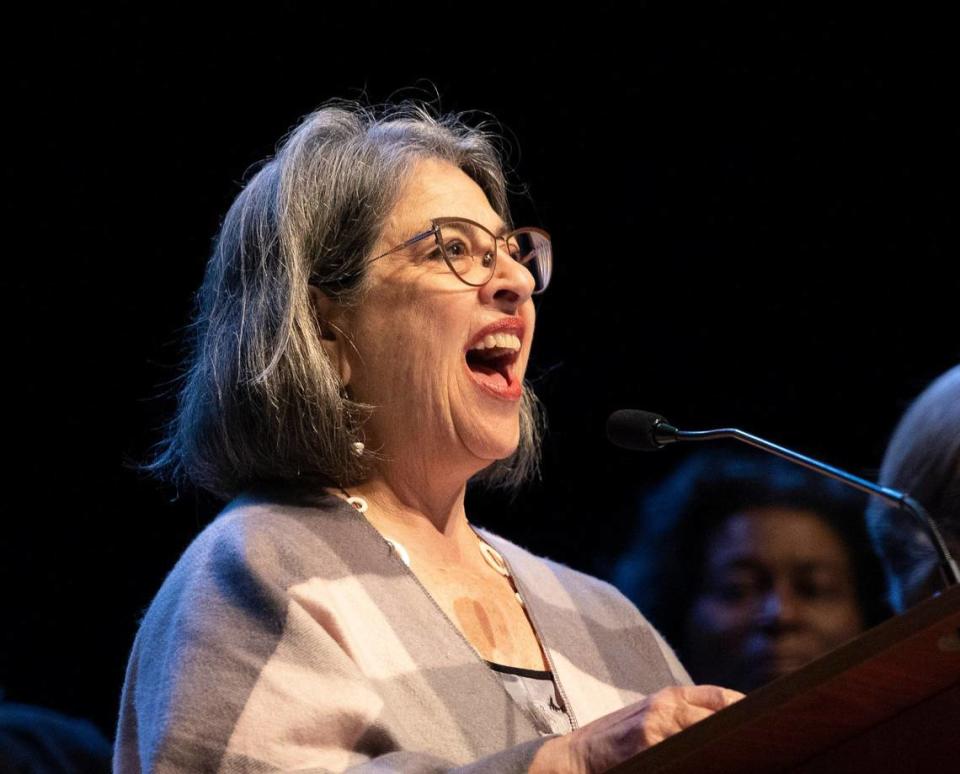
The problems and possible solutions vary from year-to-year, but are always developed by the community. PACT committees discuss the problem and speak with experts to research solutions for months before the assembly.
READ MORE: ‘Let Justice Roll!’ How a group of many faiths takes on Miami’s big social problems
“We asked ‘what problems keep them up at night.’ Every single congregation came back saying ‘high rent.’ Because as we said, the rents are too high,” said Melody Torrens of the Center for Jewish Life at Beth David who’s on the rent steering committee.
After the problems are outlined, PACT members ask public officials — head on — if they will commit to taking specific steps. Whenever an elected official answers “Yes,” to a question, the room shouts in unison, “Let justice roll!” If they answer “No,” the room goes silent before allowing the official to speak.
“Let Justice Roll” was heard many times on Monday night.
‘The rents are too high’
Since rent control is illegal in Florida, PACT’s proposals focused on encouraging private landlords and offsetting the costs of opening efficiencies to low-income renters.
“Private landlords can raise rents as much as the one from one year to the next, making all renters powerless,” said Mary Bary of Fulford United Methodist Church. “The only way to make rent affordable to low income renters through private landlords is to provide financial support and training.”
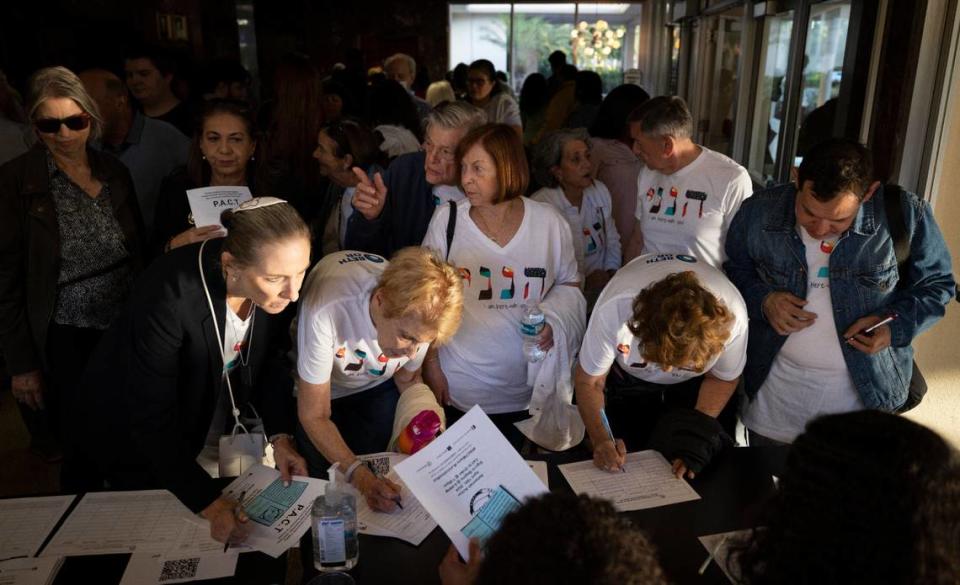
Levine Cava answered yes to whether her administration would financially support a pilot program promoting a type of housing called Accessory Dwelling Units (ADUs) — rental units on existing properties such as efficiencies, remodeled garages or attics or small cottages known as casitas.
“Truly this solution is a great one,” Levine Cava said. “I am a strong strong supporter of ADUs as an option.”
Public Housing and Community Development Director Alex Ballina and Miami-Dade Commissioner Eileen Higgins also both agreed to support the program, specifically for property owners who rent to tenants earning 80 percent of median income in the area— which is $57,800 and below. Higgins said the program will only work with cooperation from homeowners who would need to offer up their unused land to renters.
“How many people are a homeowner here? Have a single family home? We need your backyards.” Higgins said. The plea was met with laughter from the audience. “Please look and see if you might want to be one of the first participants in all of this.”
Higgins noted that the program is possible due to a change in legislation, co-sponsored by Commissioner Raquel Regalado in 2022, that loosens zoning rules, making it easier to add apartments to suburban homes.
“We created the zoning, we’re gonna create the programming,” she said. “Accessory dwelling units is a way where each and every one of us that is lucky enough to be a homeowner can become part of the solution to the housing crisis.”
Elected officials made their commitments after hearing from Bonnie Riley of St. Peters Missionary Baptist Church, who spoke about her and husband’s current struggle to find a place to live. The homeowner the couple had been house-sitting for almost 15 years in Florida City decided to sell the property, leaving them without a place to go.
“We have hit the unstable housing market head on,” she said in an interview with the Herald. “I have an understanding now of what it means to be homeless.”
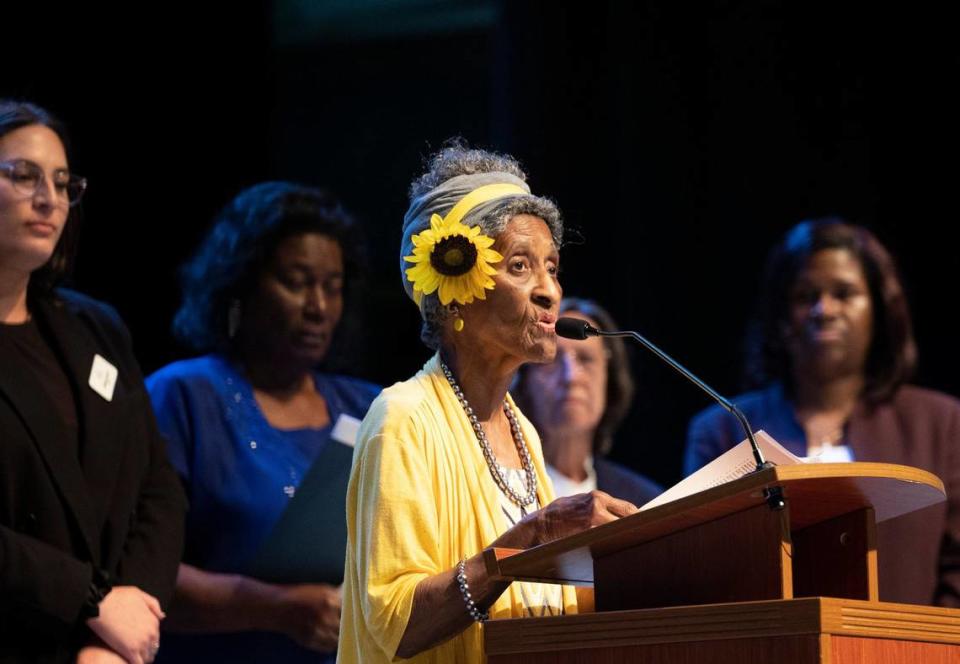
Riley, who turns 80 this year, and her husband, who is legally blind, have applied for Section 8 housing and other housing assistance, but they’ve been told their income bracket is too high to qualify. Yet, due to high rents, Riley and her husband cannot afford stable housing.
“It is a catch 22. We’ve hit this several times,” she said. “We don’t make enough money for some, and we make too much money for others.”
‘Reduce arrests’
The assembly, attended by over 700 people, also addressed PACT’s proposal to reduce arrests for non-safety related diving offenses, a problem that disproportionately affects Black and low-income people in Miami-Dade.
“People are being arrested in our county simply because they are too poor to pay a fine or fee associated with a suspended license,” said Alia Pasha, a member of Masjid Al-Ansar, a mosque in Liberty City. “This is just unacceptable.”
A whopping one-third of Miami-Dade drivers are driving on a suspended license, mostly due to unpaid fines or fees, not because of dangerous driving, according to PACT’s research. In 2022, there were over 50,000 people arrested in Miami-Dade for driving with a suspended license.

It’s not the first time that PACT has highlighted this problem. The group began working on solutions on ‘policing,’ in 2020 and on Monday night referenced a Driver License Task Force Final Report, issued nearly two years ago that found the majority of people with license suspension (63 percent) have had their driver license suspended for failure to pay a fine. PACT proposed that police begin using a pre-arrest program, such as the Driver’s License Citation Program, that aims to keep people out of jail while still holding people accountable.
“Civil citations are a way for adults to make amends for minor mistakes without being branded for life for the criminal record,” said Monsignor Chanel Jeanty from St. James Catholic Church. “This type of policing is smart, cost effective and humane. Not only does a county reap the financial benefits, but it also allows people a necessary second chance, something we as people of faith can all stand behind.”
Judge Steve Leifman, one of the stakeholders who agreed to help implement the Diver’s License Citation program, said there are almost 600,000 people in Miami-Dade who are driving with suspended licenses.
“Most of them are for failure to pay because they often cannot afford to pay,” said Leifman. “I often tell people in court that if you want to see a grown man cry, help them get his driver’s license back. Because the system is not only difficult, it’s remarkably complicated.”
Juan Fernandez-Barquin, who was also on board with PACT’s asks, said his team has implemented a payment plan to help people reinstate their driver’s license as well as an auto-pay option that will be rolled out in the next few months.
One of the key stakeholders on the Driver License Suspension Task Force, State Attorney Katherine Fernandez Rundle, was noticeably absent from Monday’s assembly. PACT members said Rundle could not attend due to a minor surgical procedure, but declined to send a representative in her place and denied a pre-assembly meeting. Group leaders were critical of Rundle, who they said verbally committed to supporting civil citation expansion, but “has yet to follow through on her commitment with any actual action,” said Jonathan Sepsenwol, PACT’s vice president and a member of Temple Beth Sholom.
“She has left us with no other option but to show up at her office and demonstrate exactly how urgent this issue is,” Sepsenwol said, “We’ll be gathering all together at her office on April 22 ... to hold her accountable to us voting citizens of Miami-Dade County.”
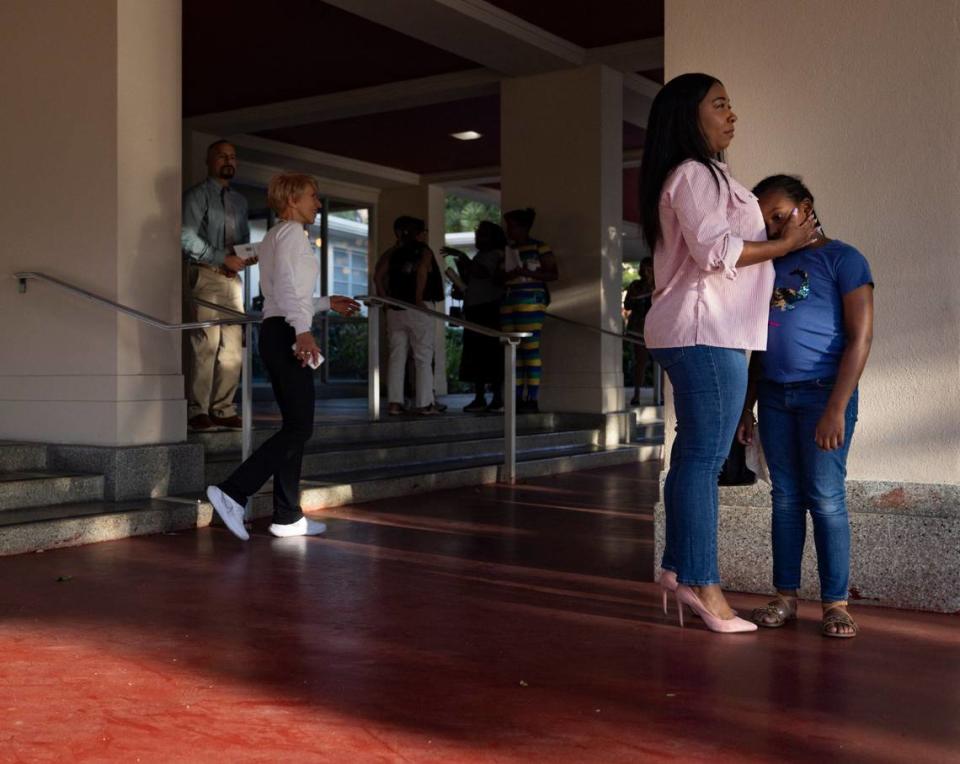
This story was produced with financial support from Trish and Dan Bell and from donors comprising the South Florida Jewish and Muslim Communities, in partnership with Journalism Funding Partners. The Miami Herald maintains full editorial control of this work.

